I’ve read books in English, French, and Arabic. Both fiction and non-fiction.
Mostly, I’ll post here non-fiction English books. At least, the ones that I can recommend and might be relevant to most of you.
Also, I’ll skip the books that I read but don’t remember much of them. I spent a decade reading without taking notes. Please don’t do like me. It’s such a waste.
This section is only meant to spark your interest in books. So I’ll only write my impressions and three notes from the books. For more details, summaries and reviews, you can find them on Amazon or any other source.
For a faster research, you can click on any tag below to find the books of your interests.
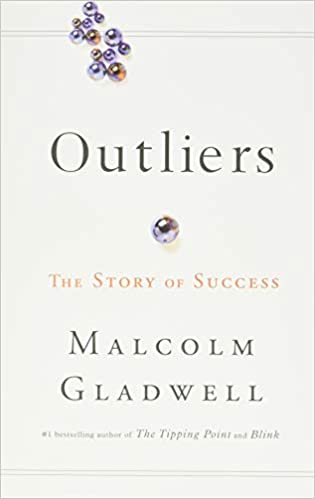
Outliers
The Story of Success
Malcolm Gladwell
I read The Tipping Point after reading Outliers. From a writing perspective, Outliers is far better. It is fluid with a dose of suspense. You don't see from the beginning how the different chapters are connected to the main idea, which keeps you captivated. For the rest, based on the story of many successful people, Gladwell shows what it takes to be successful. Also, you'll understand why some ingredients of success are not replicable.
Three notes from the book:
1- Achievement is talent plus preparation. The problem with this view is that the closer psychologists look at the careers of the gifted, the smaller the role innate talent seems to play and the bigger the role preparation seems to play.
2- Those three things - autonomy, complexity, and a connection between effort and reward - are, most people will agree, the three qualities that work has to have if it is to be satisfying.
3- It is those who are successful, in other words, who are most likely to be given the kinds of special opportunities that lead to further success. It’s the rich who get the biggest tax breaks. It’s the best students who get the best teaching and most attention. And it’s the biggest nine- and ten-year-olds who get the most coaching and practice. Success is the result of what sociologists like to call “accumulative advantage.

How to Take Smart Notes
One Simple Technique to Boost Writing, Learning and Thinking – for Students, Academics and Nonfiction Book Writers
Sönke Ahrens
My note-taking system was probably one of the worst on Earth. Basically, I just copied and pasted. No wonder that nothing stayed in my brain. I tried in the last couple of years to correct this bad and useless habit. This book describes a more efficient note-taking system. The sooner you learn it, the more you can benefit from your learnings.
Three notes from the book:
1- Writing is, without dispute, the best facilitator for thinking, reading, learning, understanding and generating ideas we have.
2- Studies on highly successful people have proven again and again that success is not the result of strong willpower and the ability to overcome resistance, but rather the result of smart working environments that avoid resistance in the first place.
3- He did not just copy ideas or quotes from the texts he read, but made a transition from one context to another.
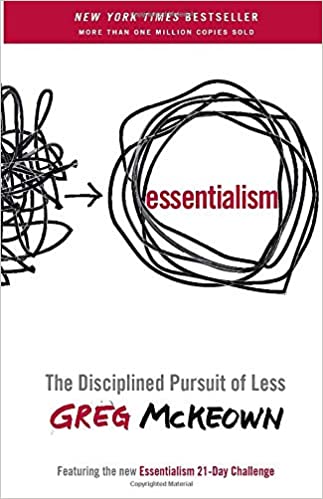
Essentialism
The Disciplined Pursuit of Less
Greg McKeown
If you are the kind of person who has 10 priorities per day, then you need to read Essentialism. This book is not about getting more things done. It's about doing the few and essential things in a better way.
Three notes from the book:
1- If you don't prioritize your life, someone else will.
2- Have you ever felt the stress that comes from simultaneously holding two contradictory beliefs: "I can't do this" and "I have to do this"?
3- For a type-A personality, it is not hard to push oneself hard. Pushing oneself to the limit is easy! The real challenge for a person who thrives on challenges is not to work hard.
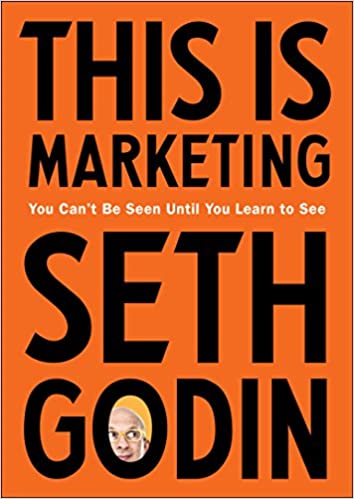
This Is Marketing
You Can't Be Seen Until You Learn to See
Seth Godin
I listened to more interventions of Seth Godin than I read his books. I like his way of thinking about how marketing should be. It's a more respectful approach to how we present our work (product or service) to the world. If you ever had a bad image of marketing (like I used to), you'll end up with a different opinion.
Three notes from the book:
1- Marketing is the generous act of helping someone solve a problem. Their problem.
2- For the independent creator of intellectual property (a singer, perhaps, or a writer), it turns out that a thousand true fans might be sufficient to live a better-than-decent life.
3- If you want to make change, begin by making culture. Begin by organizing a tightly knit group. Begin by getting people in sync. Culture beats strategy--so much that culture is strategy.
3-
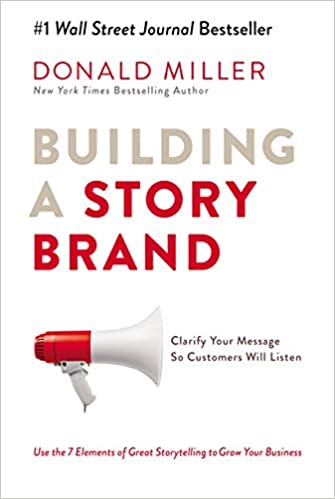
Building a Story Brand
Clarify Your Message So Customers Will Listen
Miller Donald
The one who tells the best stories win. Storytelling is an art by itself. This book gives a simple storytelling framework that is used in movies and businesses. Our ideas and products can be great, but without a great story to present them, they won't be attractive.
Three notes from the book:
1- Your customer should be the hero of the story, not your brand. This is the secret every phenomenally successful business understands.
2- How many sales are we missing out on because customers can't figure out what our offer is within five seconds of visiting our website?
3- in a story, audiences must always know who the hero is, what the hero wants, who the hero has to defeat to get what they want, what tragic event will happen if the hero doesn't win, and what wonderful thing will happen if they do.
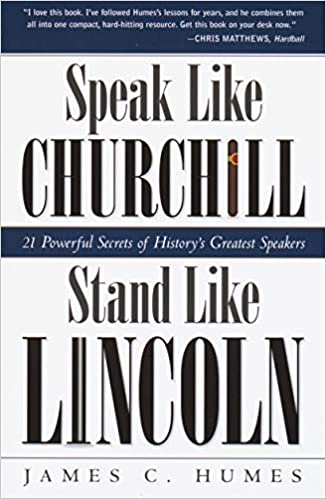
Speak Like Churchill, Stand Like Lincoln
21 Powerful Secrets of History's Greatest Speakers
James C. Humes
This book is filled with stories of great speakers and leaders. Each one of them had tools to make their speech impactful. Without them, they couldn't sell their ideas. Some of the tools are applicable to writing.
Three notes from the book:
1- Never, never, never let words come out of your mouth when your eyes are looking down.
2- Listening to long speech can seem like reading a book without punctuation>
3- The difference between so-so and superb speakers is often this: One begins banally, the other with a bang.
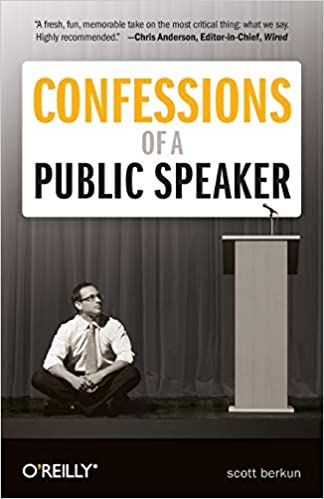
Confessions of a Public Speaker
Hilarious and highly practical bestseller
Scott Berkun
Public speaking was on the list of the things that freaks me out. Besides joining Toastmasters for practice, I bought some books to help me accelerate my learning. If you want to improve your performance, this book has practical tips and it's fun to read.
Three notes from the book:
1- If you want to be good at something, the first thing to go out of the window is the notion of perfection.
2- The body's reaction to fear and excitement is the same...so it becomes a mental decision: am I afraid or am I excited?
3- All good public speaking is based on good private thinking.
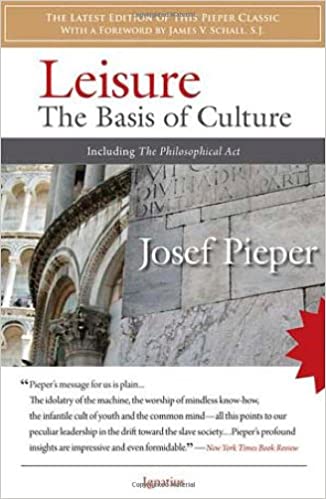
Leisure
The Basis of Culture
Josef Pieper
This book inspired me to write my article "What We Really Miss Out Living a Total Work Life". It's an invitation to give leisure its due place in our lives and to not let work take over our entire existence. Without leisure, we can neither know ourselves nor apprehend the spiritual realm.
Three notes from the book:
1- Leisure is a mental and spiritual attitude--it is not simply the result of external factors, it is not the inevitable result of spare time, a holiday, a weekend or a vacation. It is, in the first place, an attitude of mind, a condition of the soul.
2- The pause is made for the sake of work and in order to work, and a man is not only refreshed from work but for work. Leisure is an altogether different matter.
3- There is in fact no room in the world of "total labor" either for divine worship, or for a feast: because the "worker's" world, the world of "labor" rests solely upon the principle of rational utilization.
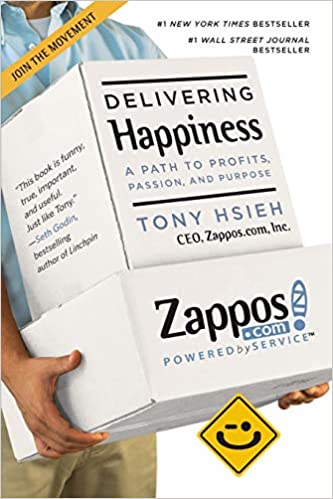
Delivering Happiness
A Path to Profits, Passion, and Purpose
Tony Hsieh
I bought this book when I was interested in companies' culture. Even though I never used Zappos (they don't operate in Canada), I found the story of their growth fascinating. Something I always believed: the companies that assist their employees in their growth and learning do greatly. The story of Zappos is the proof.
Three notes from the book:
1- Our philosophy has been to take most of the money we would have spent on paid advertising and invest it into customer service and the customer experience instead, letting our customers do the marketing for us through word of mouth.
2- What is the best way to build a brand for the long term? In a word: culture.
3- Without continually growing and learning both personally and professionally, it's unlikely that any individual employee will still be with the company ten years from now.
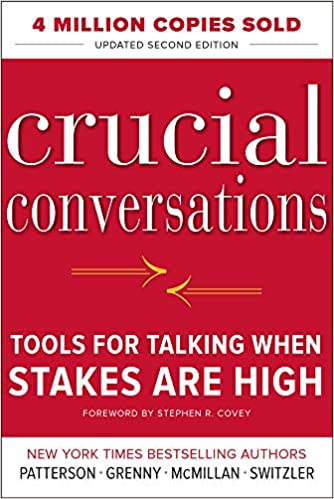
Crucial Conversations
Tools for Talking When Stakes Are High
Kerry Patterson, Joseph Grenny, Ron McMillan, Al Switzler
This book helped me manage emotionally charged situations. I don't always do it well. But now I have more tools to succeed than I had before. An essential book to have as crucial conversations can happen every day, at work or at home.
Three notes from the book:
1- Crucial conversations: A discussion between two or more people where (1) stakes are high, (2) opinions vary, and (3) emotions run strong.
2- The mistake most of us make in our crucial conversations is we believe that we have to choose between telling the truth and keeping a friend.
3- There's an intermediate step between what others do and how we feel. There's always an intermediate step because actions themselves can't and don't cause emotional reaction.










